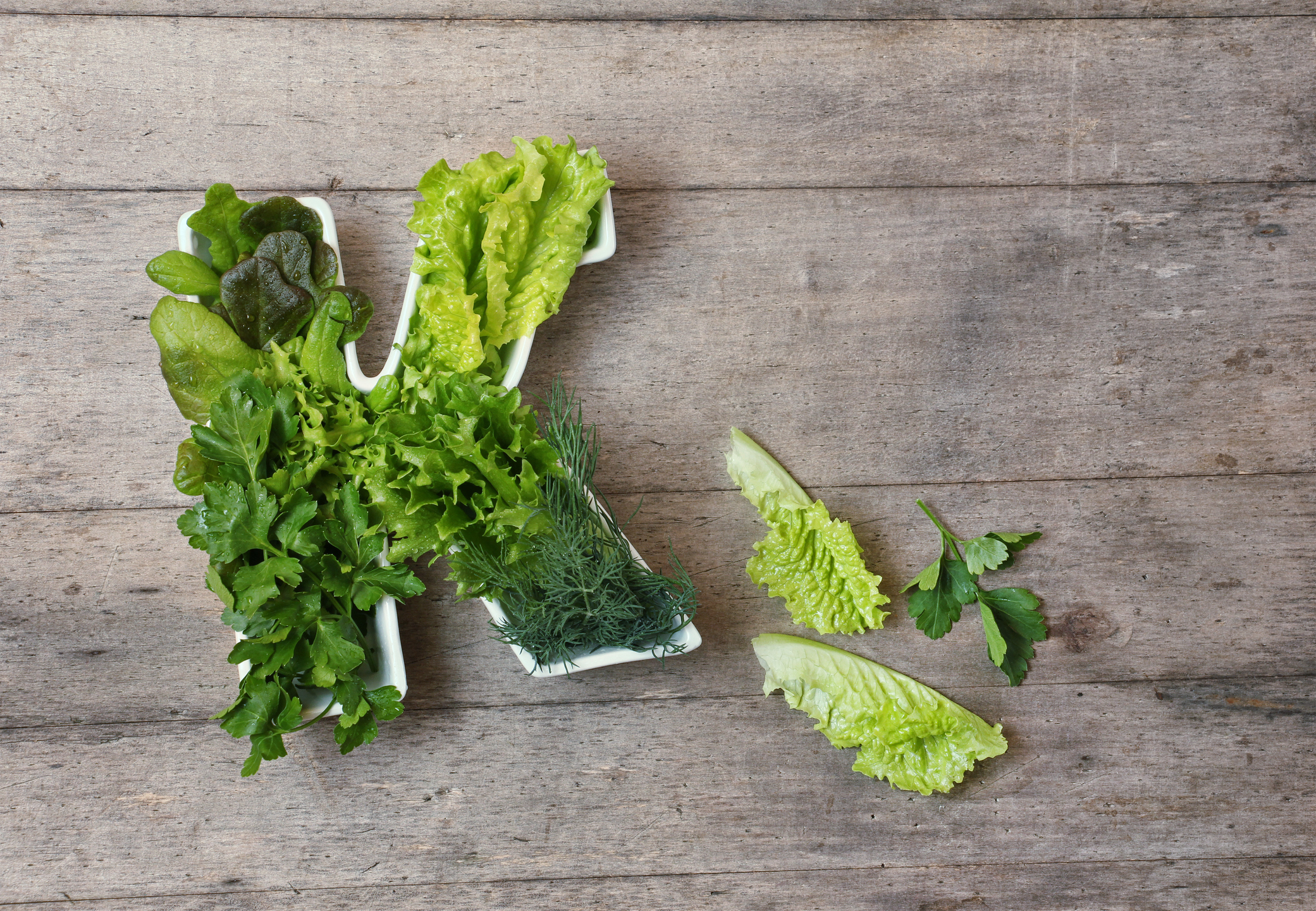Get Easy Health Digest™ in your inbox and don’t miss a thing when you subscribe today. Plus, get the free bonus report, Mother Nature’s Tips, Tricks and Remedies for Cholesterol, Blood Pressure & Blood Sugar as my way of saying welcome to the community!
Vitamin K: The secret to hard bones and soft arteries

Throughout our lives, our bones are constantly being rebuilt.
Osteoporosis develops when bone loss outpaces bone creation. Bones get too thin, and there’s a high risk of fractures, even from commonplace activities like bending or stretching.
But it would be a mistake to think that fractures are only caused by thinning or porous bones.
Besides doing what you can to keep your bones from thinning, it’s also crucial that you build bone strength as you get older.
Vitamin D and calcium, the dynamic duo of bone health, are probably the first things you think of when you think about how to keep your bones healthy.
But recent research points to another neglected vitamin that is produced in your gut and is busy strengthening your bones, even as we speak.
Vitamin K: your bones’ best friend
Dr. Chris Hernandez got curious after reading some 2017 research about bone density and bone strength in mice.
The research indicated that when the gut microbiome (the world of helpful bacteria living in the gut) of the mice was altered, their bone strength was reduced. However, their bone density remained unaffected.
Hernandez began looking through the literature in search of a nutrient the mice may have lost that would account for this.
What he found was vitamin K.
He discovered that this little-known vitamin had often been associated with fracture risk, but not with bone density.
Intrigued, Dr. Hernandez reached out to the perfect research partner who could help him explore this connection further.
What is vitamin K’s role in building stronger bones?
Dr. Kyla Shea is a research scientist at the vitamin K Laboratory at the USDA’s Human Nutrition Research Center on Aging (HNRCA) at Tufts University. Her research is focused on understanding the role of vitamin K in age-related disease.
Drs. Hernandez and Shea began collaborating to try and prove that vitamin K does have an important role in maintaining bone strength and to pinpoint that role more precisely.
Here’s what they’re sure of now:
“Vitamin K is an enzymatic cofactor that’s required for certain proteins to function,” says Dr. Shea. “One of these, osteocalcin, is the predominant non-collagenous protein in bone.”
Dr. Hernandez adds, “Osteocalcin forms a soft, string-like material inside the mineralized portion of the bone and helps make the bone matrix as a whole less brittle.”
Translation: Vitamin K is needed for bones to produce the protein osteocalcin, which protects them from fracturing.
According to Dr. Shea, most of the vitamin K in our diet comes from green vegetables, but the gut bacteria synthesize a different form — K2. It’s this form of vitamin K that could be affecting bone strength.
This isn’t surprising considering previous research that’s demonstrated vitamin K2’s biological role in making sure calcium is directed where it’s needed in the body, like in teeth and bones, while keeping it from areas where it shouldn’t be — like the soft tissue needed in your bones. In addition, vitamin K2 keeps your blood vessels elastic by safeguarding elastin, a protein that keeps vessel walls pliable.
Related: vitamin K: The missing nutrient your heart craves
The hope is that, at some point, treatment and prevention of osteoporosis in humans could involve making changes to the gut microbiome that caused it to manufacture more vitamin K2.
In the meantime, you can add to your supply of vitamin K through your diet.
Getting more vitamin K in your diet
Luckily for us, vitamin K is found in fruits, vegetables, meat, dairy products and legumes, so it’s readily available no matter what type of diet you prefer.
Fruits: prunes, kiwi, avocado, blackberries, blueberries
Vegetables: kale, mustard greens, Swiss chard, collard greens, spinach
Meat: beef liver, pork chops
Dairy: Jarlsberg, Edam, blue and cheddar cheeses, egg yolk, whole milk
Legumes: green peas, soybeans, cashews, red kidney beans
Dark, leafy greens are by far the richest food source of vitamin K, but it’s a good idea to include both plant and animal sources in your diet if you can.
As well as converted from vitamin K by your gut flora, vitamin K2 can be found in fermented products and animal-based food products.
To get the most out of your Vitamin K-rich food choices, consider eating them with some fat or oil. Vitamin K is fat-soluble, and therefore is better absorbed when combined with fat.
Editor’s note: Have you heard of EDTA chelation therapy? It was developed originally to remove lead and other contaminants, including heavy metals, from the body. Its uses now run the gamut from varicose veins to circulation. Click here to discover Chelation: Natural Miracle for Protecting Your Heart and Enhancing Your Health!
Sources:
- Is vitamin K the secret key to bone strength? — Monica Jimenez, Tufts University
- Alterations to the Gut Microbiome Impair Bone Strength and Tissue Material Properties — Journal of Bone and Mineral Research
- Vitamin K Team — Tufts University
- 20 Foods That Are High in Vitamin K — Healthline













